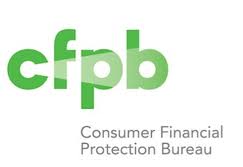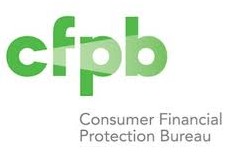Recent remarks from Consumer Financial Protection Bureau Deputy Director Steven Antonakes indicate that the CFPB remains particularly interested in data integrity during debt collection. Speaking at the National Community Reinvestment Coalition Annual Conference in Washington yesterday, Antonakes said the bureau is “concerned that the accuracy of account information degrades as it passed on from the original creditor to debt collection firms or debt buyers.” Antonakes also suggested that improvements in data integrity will further the bureau’s efforts “to ensure that collectors are seeking to recover debts from the right person in the right amounts.” Concerns over data integrity are consistent with the bureau’s policy statement in its…
Posts published in “Compliance Management”
For several years my attorney ethics presentations and papers have emphasized that lawyer supervision and particularly non-lawyer supervision, in my experience, is an area of concern for attorneys who practice debt collection law. A recent opinion from New York’s Appellate Division, Second Department, concerning the conduct of a debt collection law firm provides an example of the harm that may result from less than robust supervision of attorneys and non-attorney staff. Attorneys who practice debt collection are probably the most “compliance-aware” branch of lawyers today. They are routinely subject to client audits of their practices’ operations and financial records. Some even have ISO…
Yesterday JP Morgan Chase Bank, N.A. and certain of its affiliates entered into a sweeping consent order with the Office of the Comptroller of the Currency covering its practices for collecting debt, as well as the practices used by its third-party service providers, including lawyers. According to the consent order (available here), the bank, among other things: caused affidavits to be filed in court where the affiant did not have personal knowledge of the assertions made or had reviewed the relevant books and records; allowed the filing of “inaccurate sworn documents” that resulted in judgments with financial errors in favor of…
Changes to the systems by which banks and other entities (also known as “furnishers”) supply credit reporting agencies with consumer credit information prompted a Bulletin yesterday from the Consumer Financial Protection Bureau emphasizing the greater role it sees documents playing in the consumer credit dispute process. In announcing its expectation that furnishers review “all relevant information” when responding to consumer disputes, the CFPB reiterates what is already required by FCRA’s section 1681s-2(b). When responding to a consumer’s dispute concerning information furnished by it to a credit reporting agency, a furnisher is required, among other things, to “review all relevant information provided by the CRA . . .”…
If your organization might have violated a consumer financial protection law, should it disclose that potential violation to the Consumer Financial Protection Bureau? It seems that at least one CFPB insider believes that the potential violation should be self-reported. At today’s meeting of the Consumer Financial Services Committee in San Francisco, Peggy Twohig, CFPB Assistant Director, Office of Supervision Policy, offered a few remarks on whether a covered entity should self-report conduct where the law is not clear on whether the conduct violates consumer financial protection law. In concluding that an entity should self-report even these “grey issues,” Twohig noted that covered entities…
Prelude: In 2010, the Federal Trade Commission released a study entitled “Repairing A Broken System: Protecting Consumers in Debt Collection Litigation and Arbitration.” What follows is part two of a report on their latest repair efforts. In a February blog post, I explored the Federal Trade Commission’s press release equating a potential defense (the expiration of a limitations period) with a legal right. I’m headed back to that same press release to consider another questionable call from the FTC’s efforts to “repair a broken system.” So today, here is Chapter Two: “How to Confuse People Into Believing You Are Furnishing Negative Credit Information Concerning Them.”…
The Federal Trade Commission had an epiphany last week – debt collectors must disclose in their communications that a debt subject to a statute of limitations defense creates a “legal right” which prevents a creditor from filing a lawsuit. Read it here: FTC Press Release, 1/30/12. It only took the federal agency 33 years of enforcing the Fair Debt Collection Practices Act (15 U.S.C. § 1692) (the “FDCPA”) to come to this conclusion. Quite a milestone and quite a reflection of our times. Although I haven’t been working on FDCPA issues quite as long as my colleagues in Washington, I’ve…







